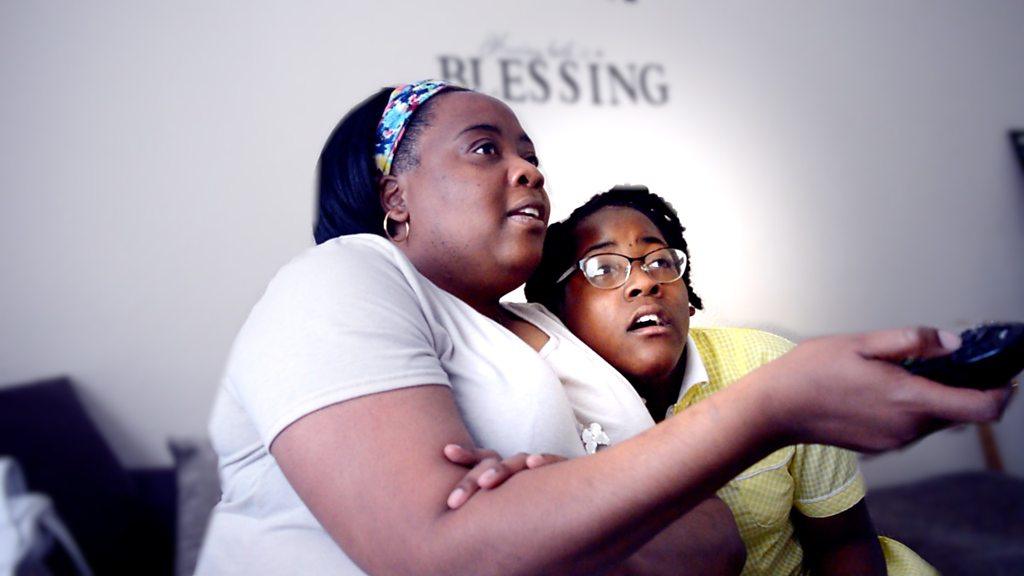Surya Kasibhatla: Actor with cerebral palsy shines in Bollywood thriller Jalsa
- Published
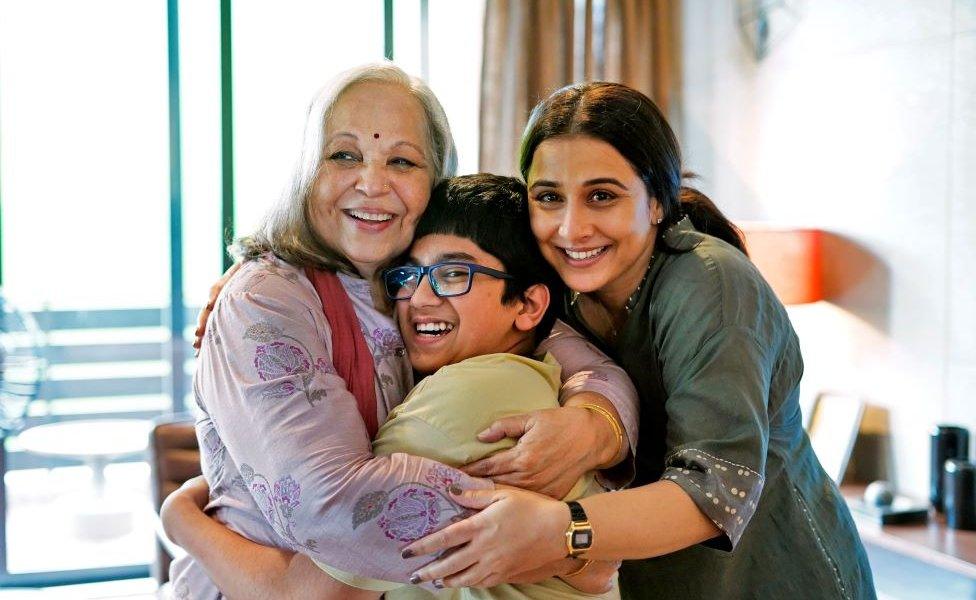
Surya Kasibhatla (middle) with his co-actors Rohini Hattangadi (left) and Vidya Balan (right)
Surya Kasibhatla, who plays a teen with cerebral palsy in a new Bollywood thriller, lives with the disability every day. But casting him is a rare move of inclusivity in the world's largest film industry. Sudha G Tilak speaks with Surya about his journey.
Surya is a vegetarian foodie, plays the piano, loves cricket, plans to learn computer programming and calls himself "a nifty coder".
The Texas-based teenager has his own Instagram handle and YouTube channel, gleefully noting the rising number of followers.
His acclaimed performance, alongside celebrated Indian actors Vidya Balan and Shefali Shah, in a new Amazon thriller Jalsa has put him in the spotlight.
"I have cerebral palsy but that does not hinder my ability to learn new skills," Surya said on a Zoom interview.
Jalsa is a gritty drama set in the city of Mumbai. Surya plays Ayush, the geeky son of a popular news anchor, played by Balan. He loves playing video games, listening to music and acting cheeky with his doting grandmother. A hit-and-run accident involving his mother turns the family's life upside down.
Surya landed the role when the casting director spotted his YouTube videos and got in touch. In the videos, Surya sings, "teaches" computer programming and offers cricket "lessons". A family friend suggested he audition for the film and his homemaker mother, Sunitha Sanagaram, encouraged him saying, "Let's do it."
The director, Suresh Triveni, picked Surya from more than 100 teen actors who auditioned. Surya flew to Mumbai during the pandemic and prepared for the role by attending workshops that "were a lot of fun" and says the crew made it "very comfortable" for him.
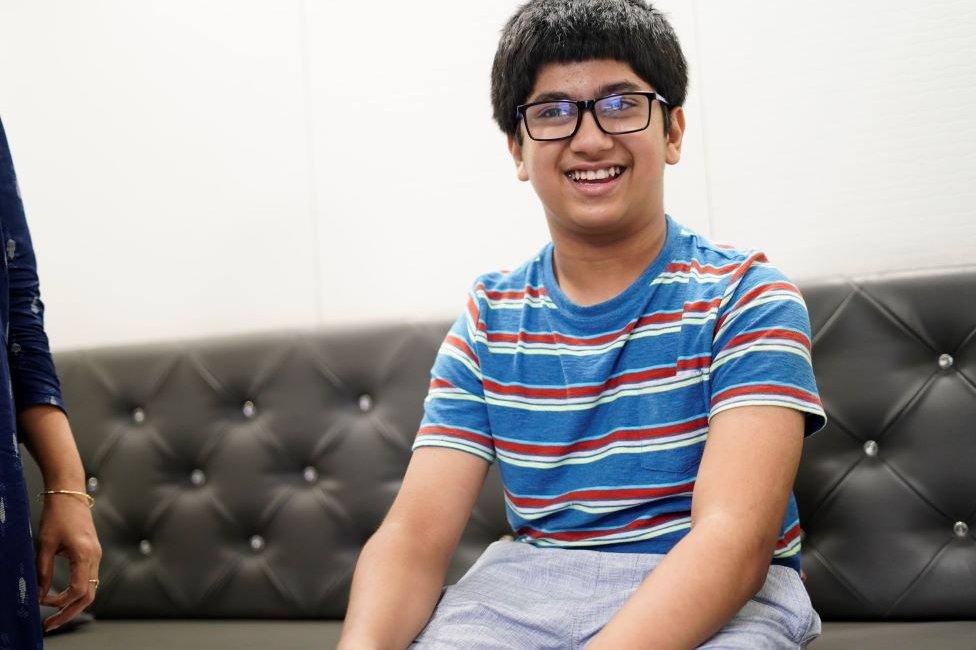
Surya Kasibhatla wants to become a computer programmer
Surya plays a foil to Balan, who grapples with intense emotional upheavals in the film, and livens up the screen effortlessly with his smile and easy presence.
Balan says Surya is "intuitive and instinctive as an actor". Shah, who has charged scenes in the film with Surya, says "he's not a trained actor but is natural before the camera".
"I love watching films, but I learnt from acting in one how many people are needed on set for even a half-a-minute scene. It was humbling to note how collaborative movie making is," Surya says.
Indian films have always had non-disabled actors play disabled characters. Jalsa breaks new ground in bringing inclusivity - many believe the roles of disabled characters should be given to people with disabilities, who could portray the nuances of living with such conditions more accurately.
"Jalsa's casting of Surya Kasibhatla is a fantastic move to bring in representation and it's a landmark film in India. They have treated the actor and his character with dignity and kept it real", says Madhusudan Srinivas, a Delhi-based journalist and disability activist.
Surya's parents - his father Krishna Kasibhatla is an IT professional - say that they have ensured that Surya has a "happy and engaged family environment at home and is part of all decision-making on important matters pertaining to him". They decided early on "not to treat him differently".
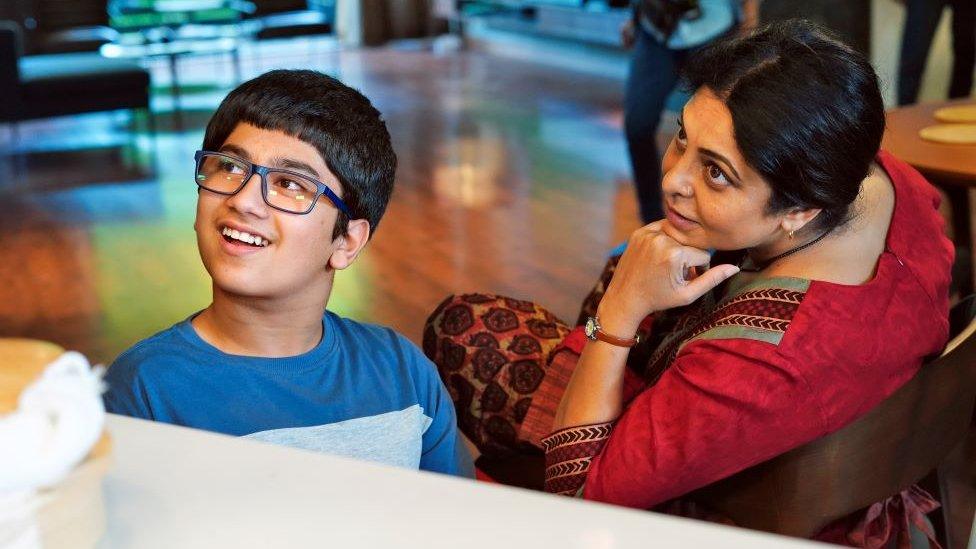
Surya hopes his role will encourage people with cerebral palsy to dream bigger
When he was four years old, Surya had told his parents that he wanted to be an actor. He loved turning up for fancy dress parties at school in Texas.
He is multilingual and follows Telugu, English and Hindi. He says he loves Bollywood and Telugu movies and is a fan of sci-fi and murder mysteries.
Surya plans to be a computer programmer, but "acting in a film is undoubtedly the most memorable experience I have had".
"I hope casting me to play the role of a person with cerebral palsy will help people like me feel they too can dream and enter the entertainment business," he says.
"I am happy to have played a part in making the Bollywood industry bring inclusivity and diversity."
Surya is a fan of Bollywood superstars Hrithik Roshan and Akshay Kumar, and Mahesh Babu from the Telugu film industry - all of whom play larger-than-life heroes.
Who are his favourite superheroes?
"My parents."
Related topics
- Published25 October 2016
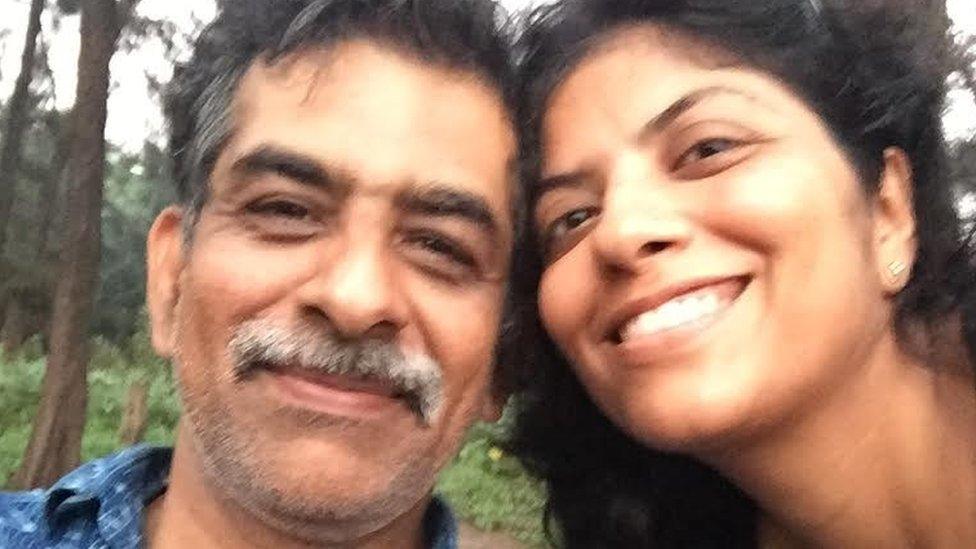
- Published1 August 2019
